We made headlines this month for our ongoing efforts to stop the spread of Stony Coral Tissue Loss Disease (SCTLD). This ‘silent killer’ is a disease that has plagued our country’s popsicle-blue waters for over a year, traveling up to 50 meters (55 yards) per day and killing hundreds of corals in its wake.
“The reality is, the disease is spreading and it’s spreading very fast,” said Dr Valeria Pizarro, our senior coral reef scientist. “If we lose those species which build up coral reefs, we might lose coral reefs in the long term with profound ecological impacts,” she said.

PIMS is a key member of the Bahamas Stony Coral Tissue Loss Disease Task Force, and has already confirmed the presence of SCTLD on reefs off Grand Bahama, New Providence and North Eleuthera. Our early assessments also show some species are more susceptible than others; brain corals, for example, are particularly susceptible to infection and often die within weeks.
SCTLD has also been reported but not verified in Abaco and the Exumas. Worse still, the disease affects more than 20 hard coral species in the Caribbean.
“I’ve been diving since I was a teenager and I’m now in my 30s, and I’ve never seen so much coral death,” said Dr. Krista Sherman, a fellow senior scientist at PIMS. “It’s depressing.”
Read more in the media here!
And if you see corals infected with SCTLD, don’t forget to report it here. Please provide photos of the suspected case of SCTLD if possible, and let us know the location.


Build a Coral Reef for the Holidays | PIMS x Partanna
PIMS is partnering with Partanna to build a 100m² carbon-negative reef. Rick Fox is matching donations up to $25k. Help us build a sanctuary for the future.
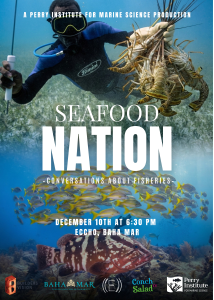
“Seafood Nation” Documentary Premiere Explores the Heart of Bahamian Culture and the Future of Fisheries
NASSAU, The Bahamas | December 5, 2025 – From the bustling stalls of Potter’s Cay to family kitchen tables across the archipelago, seafood is far more than just sustenance in
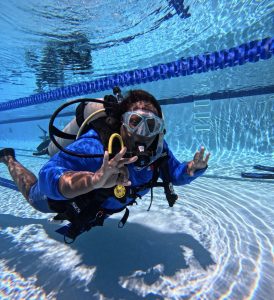
PIMS and Disney Conservation Fund Partner to Train 19 Government Divers
PIMS dive training in Nassau strengthened national coral restoration capacity across government agencies. Bahamas Dive Training Builds National Coral Restoration Capacity Last fall, between the months of September and October,
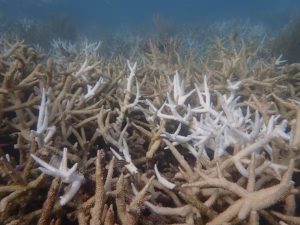
Florida’s Coral Reef Crossed a Line: What Functional Extinction Really Means for Elkhorn and Staghorn Corals
Reefs didn’t just bleach. They functionally vanished in one summer. A new Science study co-authored by researchers from the Perry Institute for Marine Science (PIMS) has found that Florida’s two
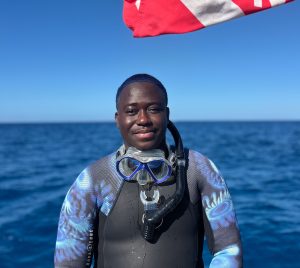
Q&A: Understanding the IDC Course at PIMS with Duran Mitchell
A former aquarist turned coral conservationist, Duran is passionate about understanding how all marine life connects. PIMS & IDC: Empowering New Dive Instructors for Marine Conservation PIMS & IDC: Empowering
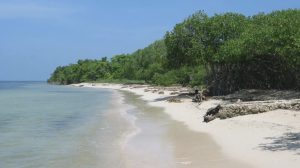
Forbes Shines a Spotlight on Coral Reef Restoration in the Caribbean
When Forbes highlights coral reef restoration, it signals something powerful: the world is paying attention to the urgent fight to protect reefs. And solutions are within reach. Recently, Forbes featured Dr. Valeria



